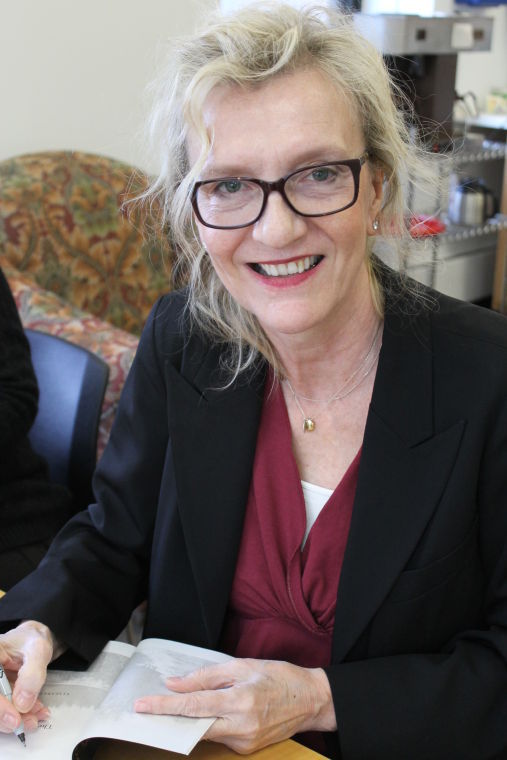|
Discovering a new writer is, to me, like making a new friend. At first, you find you share certain sensibilities, perhaps a shared interest or endeavour. Over dinner or an activity, you move beyond that initial comfort, to find you want to spend time together, to seek out that person’s company. Eventually, you hope you have found someone who will stay in your life for a long time. Writer Elizabeth Strout has become my new friend. All I can think now is, where were you all this time? How did I not know you? Strout took the slow road to success but is now a Pulitzer-winner and a bestseller with a collection of books, that can be read both as standalone or as series. Reading them, I found many of the same characters run throughout the books. In some cases, such as the Lucy Barton collection, we come to know this woman, her husbands, and children as they grow and change over the years. In others, some of the minor characters return as a fleeting reference or as a character upon which the narrative hinges. Again and again, Strout’s, much-loved creations discuss childhood, loneliness, poverty, class (rarely addressed in American literature) and family history. Never maudlin, and always with a giant dose of humour, these themes are balanced with hope, love, and recreating ourselves beyond our past. Strout is less interested in worldly detail with a razor-sharp focus on the interior. She is a quiet writer with an uncanny ability to capture those most common moments in time with the weight of meaning. In simple sentences, we know exactly what a scene feels like, and we can see ourselves inside it. “It was hot, and stayed hot. The sky stayed white. July arrived with a sense that it had always been July and always would be… Isabelle herself was stunned. She remained stunned as the colourless days rolled by.” Or Strout conveys our deepest emotions with extraordinary insight and simplicity. “Once or twice, oddly, she had even sat behind her typewriter and simply felt free… It was like after a thunderstorm when the air seemed suddenly relieved of a headache. Such a feeling, such clarity, took her by surprise… Isabelle would leave. She saw this in these moments of clarity, recognizing how her warmth for those around her stemmed partly from a growing distance.” Writing from her own perspective, as a woman in the last acts of her life, I instantly bonded with Strout as she spoke so concisely what we all must feel at times. “Would she never have that yearning and high-pitched excitement again? Did age and experience just mute you?” “She thought nothing could be told and be accurate. Feeble words dropped earnestly and haphazardly over the large stretched-out fabric of a life with all its knots and bumps… she saw that it was not another’s experience she wanted to touch and turn and mold and devour, it was her own.” The last page of ‘My Name is Lucy Barton’ contains just four sentences. Two are very short, one is of average length, and just one sentence, describing sun setting at a farmhouse in the fall, is as vivid as a photograph. The final line is, “All life amazes me.” Such economy of language to capture a character, “with longings so large you can’t even weep.” Beautiful. The clean prose, the slow reveals, the wisdom – what Hilary Mantel once described as “an attention to reality so exact that it goes beyond a skill and becomes a virtue” – these are the qualities that led to Strout winning the Pulitzer for fiction. I was all over the map in reading Strout, but it may be more satisfying to read the collection in order: Olive Kitteridge series Olive Kitteridge (2008) Olive, Again (2019) Lucy Barton series My Name is Lucy Barton (2016) Anything is Possible (2017) O William! (2021) Lucy by the Sea (2022) Standalone Novels Amy & Isabelle (1998) Abide With Me (2006) The Burgess Boys (2013) As the long nights of winter continue, curl up in your most comfortable chair and enjoy this wonderful writer. If you already have, let me know your thoughts. In the meantime, happy reading! Joni
0 Comments
|
Archives
July 2024
Categories |

 RSS Feed
RSS Feed
